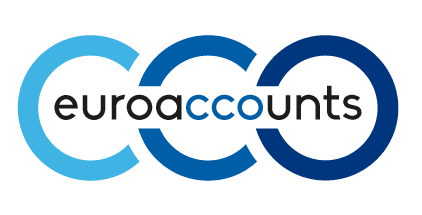Financial Reporting and Consolidation in Spain is more than a compliance task for multinational companies — it’s a strategic pillar for group control, transparency, and growth. From IFRS or US GAAP application to real-time reporting for headquarters, it requires deep local expertise and seamless ERP integration.
This guide provides CFOs and controllers with actionable steps to set up an efficient, audit-ready consolidation process that aligns with global standards. EUROACCOUNTS delivers the flexibility, technical knowledge, and multilingual coordination to make this happen — without the rigidity or cost of a Big Four.
Discover how we can help streamline your financial reporting in Spain.
What makes your international financial reports stand out?
Dual accounting framework: Spanish GAAP + IFRS / US GAAP
Subsidiaries of international groups operating in Spain must manage a dual accounting environment. On one hand, they must comply with Spanish GAAP (PGC) for local statutory purposes; on the other, they must align their financial reporting with international standards such as IFRS or US GAAP to meet group requirements.
For instance, a US-headquartered company may require monthly consolidated reports under US GAAP, while the Spanish subsidiary must file audited annual accounts under PGC. Key differences —such as asset valuation, revenue recognition, and provisions— require ongoing reconciliation and deep technical understanding.
| Aspect | Spanish GAAP (PGC) | IFRS | US GAAP |
|---|---|---|---|
| Regulatory basis | Plan General Contable (Royal Decree 1514/2007) | International Financial Reporting Standards | Generally Accepted Accounting Principles (US) |
| Accounting approach | More prescriptive and legalistic | Principle-based | Rule-based, detailed guidance |
| Asset valuation | Historical cost, with exceptions | Cost or fair value | Generally historical cost |
| Revenue recognition | Transfer of risks and rewards | IFRS 15 – by contract performance | ASC 606 – similar to IFRS 15 |
| Financial statements format | Standardised statutory formats | Flexible presentation | Industry-specific structure |
| Typical use by international groups | For local compliance in Spain | Standard for Europe, Asia, LatAm | For US-based or listed companies |
Local reporting vs. consolidated reporting
Beyond statutory accounts, international reporting entails monthly closings, forecasts, group KPIs, and intercompany reconciliations. This consolidated reporting process must ensure data consistency, comparability, and compliance across multiple jurisdictions.
At EUROACCOUNTS, we integrate directly with your ERP systems (SAP, Dynamics, etc.) to harmonize data flows, automate adjustments, and deliver reporting packages that meet both audit and group requirements, in the required format and language.
Example: Canadian tech group with Spanish subsidiary
A Toronto-based technology group operating in Madrid needed to comply with IFRS for consolidation and Spanish GAAP for legal filing. With EUROACCOUNTS, they implemented a dual-track system that automatically reconciled adjustments across standards, reducing consolidation time by 30 %. A secure reporting dashboard enabled the CFO to monitor financial closings in real time.
Learn more about how EUROACCOUNTS can support your IFRS reporting in Spain.
When and why consolidate in Spain?
Legal requirements under the Spanish Commercial Code and NFCAC
According to the Spanish Commercial Code and the Norms for the Preparation of Consolidated Financial Statements (NFCAC), a group is required to consolidate when it exercises control over one or more entities. This includes holding more than 50 % of voting rights, appointing the majority of board members, or directing financial and operational policies.
Moreover, if the group exceeds two of the following thresholds for two consecutive years — €11.4M in assets, €22.8M in turnover, or 250 employees — consolidation becomes mandatory. This applies even when subsidiaries operate in different jurisdictions.
Exemptions and voluntary consolidation
Certain exemptions apply. A subgroup may be exempted if it is already included in consolidated statements at a higher level (e.g. in another EU country), or if the subsidiaries are immaterial. In other cases, voluntary consolidation may be advisable for internal control, investor transparency or debt structuring.
Evaluating whether you qualify for exemption — and whether it makes strategic sense — requires a combination of regulatory knowledge and financial planning.
Example: Industrial group not required to consolidate, but does
An industrial group with three Spanish entities fell below the legal thresholds for mandatory consolidation. However, its German headquarters required quarterly IFRS reporting. EUROACCOUNTS implemented a voluntary consolidation system aligned with IFRS and synchronized with Spanish GAAP data, enhancing internal control and visibility across the group.
Explore more on financial statement consolidation in Spain.
Efficient consolidation process for international groups
Data preparation and harmonisation with ERPs
The first step in financial consolidation is to gather and harmonise accounting data across all group entities. Multinationals often face challenges related to different currencies, reporting standards, and ERP systems.
EUROACCOUNTS works directly within the client’s ERP environment (SAP, Dynamics, Priority, SAGE X3), extracting raw data and applying custom logic for consolidation. This avoids data duplication, enhances accuracy, and accelerates the reporting cycle.
Consolidation methods: full, proportional and equity method
Depending on the level of control, different consolidation methods apply:
- Full consolidation: includes 100% of the subsidiary’s assets, liabilities, and results, with intercompany eliminations.
- Proportional consolidation: includes items in proportion to ownership share.
- Equity method: used for significant influence, reflecting the investor’s share of net assets.
Choosing and consistently applying the correct method is essential for transparent, audit-compliant reports.
Automation, e-invoicing and intercompany flows
Modern consolidation requires more than Excel. With EUROACCOUNTS, multinational clients benefit from intercompany reconciliation tools, automated journal entries, and integration with electronic invoicing platforms.
This eliminates repetitive tasks, reduces errors and allows finance teams to focus on strategic analysis.
Example: Healthcare group operating multiple ERPs
A pan-European healthcare group with subsidiaries in Spain used three separate ERP systems. EUROACCOUNTS implemented a unified SAP-based consolidation layer, automating intercompany eliminations and IFRS reporting. The group cut month-end closing time by 50% and improved audit traceability.
Discover more about our external financial management services for international companies.
Challenges in international reporting and consolidation
Currency conversion and exchange rate differences
Multinationals operating in Spain often deal with multi-currency environments. When subsidiaries report in currencies other than the group’s functional currency, accurate currency conversion becomes critical.
Exchange rate differences can significantly affect consolidated profit and equity, making it essential to apply consistent, documented methodologies and monitor FX impacts in real time.
Intercompany transactions and eliminations
Sales between subsidiaries, intercompany loans, or management fees must be eliminated in the consolidation process. Without proper automation, these entries are prone to mismatches and delays.
EUROACCOUNTS helps international groups implement intercompany elimination rules directly within their ERP systems, reducing manual work and ensuring consolidated data integrity.
Fast closing deadlines and global coordination
Headquarters often require consolidated monthly closings within five to six days. Coordinating teams across countries, time zones, and accounting frameworks is a significant logistical and technical challenge.
Our team at EUROACCOUNTS provides multilingual, cross-border coordination, integrating with HQ controllers and standardising the consolidation calendar.
Example: Energy group with four European subsidiaries
A Copenhagen-based energy group with operations in Spain, France, Portugal, and Italy needed to shorten its closing cycle. EUROACCOUNTS developed a staggered reporting timeline, consolidated templates, and automated dashboards. Result: a four-day closing process, zero reconciliation errors, and improved visibility for financial stakeholders.
Read more about our international advisory services for multinational groups.
Conclusion: Get full control of your financial reporting in Spain
For international companies, financial reporting and consolidation in Spain is more than a compliance task — it’s a strategic function. Whether your group applies IFRS, US GAAP, or local standards, efficient reporting is key to transparency, performance and investor confidence.
At EUROACCOUNTS, we combine local knowledge with international consolidation expertise, working directly in your ERP to deliver accurate, fast, audit-ready reports. From intercompany automation to real-time dashboards, we help you close faster and report smarter.
Contact EUROACCOUNTS to transform your group reporting in Spain.
Frequently Asked Questions
When is financial statement consolidation required in Spain?
Consolidation is required when a group controls one or more entities and exceeds certain thresholds in assets, revenue, or headcount, as defined in Spanish regulations.
What is the difference between statutory and consolidated financial reporting?
Statutory reporting complies with Spanish GAAP (PGC), while consolidated reporting aligns all group entities under IFRS or US GAAP for group-level transparency and comparability.
How does EUROACCOUNTS support financial consolidation?
EUROACCOUNTS integrates directly with your ERP, automates adjustments and reconciliations, and delivers audit-ready consolidated reports tailored to HQ needs.
Can intercompany eliminations and currency adjustments be automated?
Yes. EUROACCOUNTS builds custom workflows to automate intercompany eliminations and FX adjustments within your ERP, ensuring consistency and reducing closing time.





